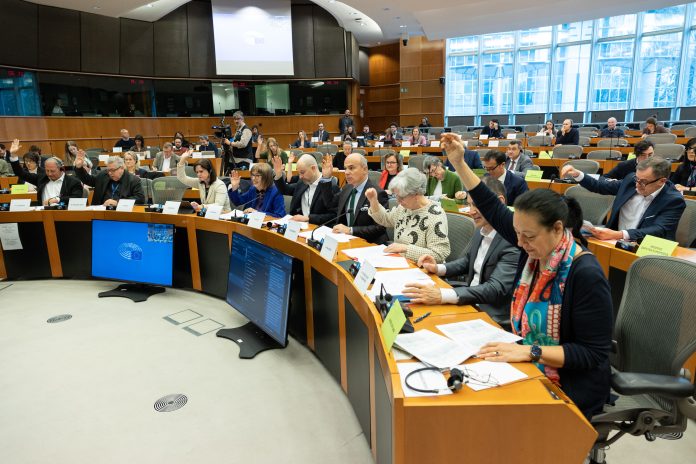The International Trade Committee gave its green light on Thursday for a one-year renewal of EU import duties on Ukrainian exports to support the country’s economy.
Members of the International Trade Committee approved a proposal to renew the suspension of import duties, anti-dumping duties and safeguards on Ukrainian exports to the European Union for another year, against the background of Russia’s war of aggression that is hampering Ukraine’s ability to trade with the rest of the world.
The suspension of tariffs applies to fruits and vegetables subject to the entry price system, as well as agricultural products and processed agricultural products subject to tariff-rate quotas. Industrial products are subject to zero duties since 1 January 2023 under the EU-Ukraine Association Agreement, so they are not included in the new proposal.
MEPs adopted the committee’s draft report, prepared by standing rapporteur for Ukraine Sandra Kalniete (EPP, LV), by 27 votes, with 1 against and 7 abstentions.
“I strongly support renewing the trade-liberalisation measures that currently help ensure Ukrainian continuity and stability of trade amidst brutal war caused by Russia. These measures are pivotal to strengthening Ukraine’s resilience in the present and with an eye toward the future, as we work to advance Ukraine’s gradual integration in the EU internal market. Our solidarity with Ukraine is consistent, transparent, and rock-solid, which has been further reinforced by Ukraine’s EU candidate status. Ukraine’s future is in the European Union”, said Sandra Kalniete.
Relations between the EU and Ukraine are regulated by an Association Agreement. The Deep and Comprehensive Free Trade Area included in the agreement has ensured preferential access to the EU market for Ukrainian businesses since 2016.
According to the Commission, the EU is Ukraine’s largest trading partner, accounting for 39.5% of its trade in 2021. Ukraine is the EU’s 15th biggest trading partner, accounting for around 1.2% of the EU’s total trade.
The draft report is scheduled to be voted by all MEPs during the 8-11 May plenary session. The measure will apply on the day following its publication in the Official Journal of the EU.

